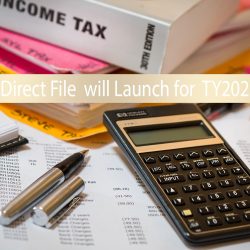Getting a letter from the IRS is the last thing anyone wants to find in their mailbox. Especially dreaded is the notification of a tax audit looming over our heads. However, you don’t need to worry about audits. Understanding some key facts about IRS tax audits during tax season could alleviate your anxieties. Here’s why you shouldn’t lose sleep over it this year:
- Low Audit Risk: If your income falls within the middle to lower brackets and your taxes are straightforward, chances are slim that the IRS will audit you. From 2011 to 2019, the IRS only audited 0.55% of individual returns filed. High-income earners are the primary targets, with 8.9% of individuals earning over $10 million facing audits during the same period.
- Audit ≠ Trouble: While an audit might seem ominous, it doesn’t always imply wrongdoing. Sometimes, it’s simply random selection or discrepancies in your return triggering an audit. In case of errors, the IRS may request additional documents or an amended return rather than pursuing punitive measures.
- Time Limitations: IRS audits typically focus on returns filed within the last two to three years. Only in cases of substantial errors do they extend scrutiny beyond six years, sparing you from fretting over audits from a decade ago.
- Audit Triggers: Certain items on your return could pique IRS interest, increasing your audit likelihood. These include business losses classified as hobbies, unusual deductions or income tax credits, large business expenses, or casualty losses.
- Managing Audit Anxiety: While facing an audit can be daunting, remember that it doesn’t always signify trouble. Quick and accurate responses to IRS queries are key. Utilizing tools like TaxAct® can ensure error-free filing and even provide Audit Defense services for added peace of mind.
In conclusion, while the prospect of an IRS audit might induce anxiety, maintaining meticulous records and filing accurately significantly reduce your audit risk. Should you face an audit, stay calm, respond promptly, and assert your taxpayer rights for a fair resolution.









